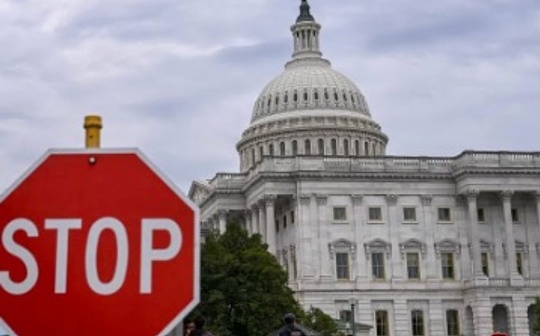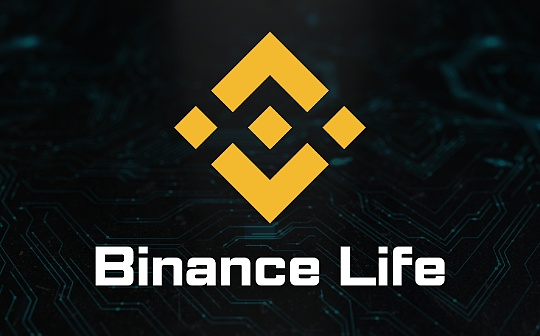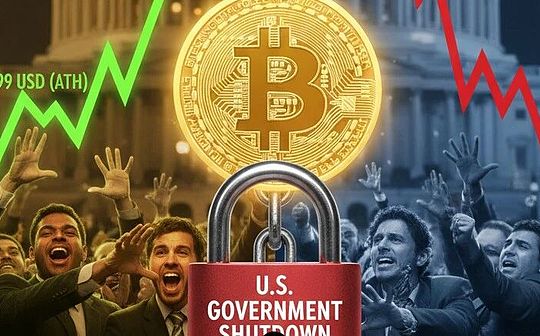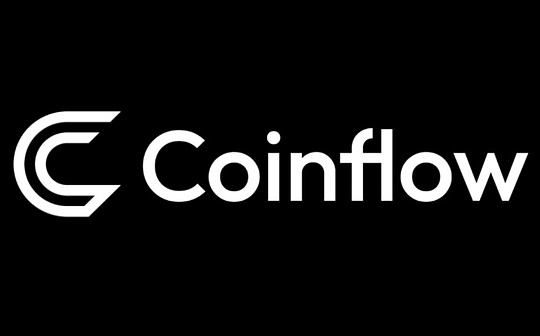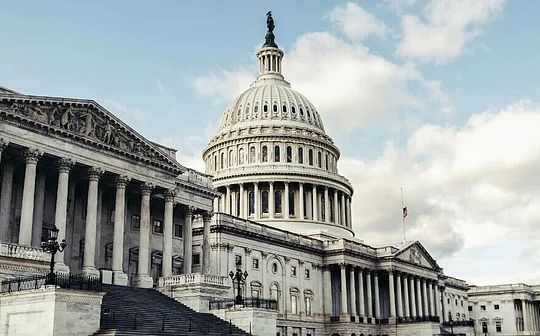
On October 1, 2025, the U.S. Senate Finance Committee held a hearing titled “Examining the Taxation of Digital Assets”, chaired by Committee Chairman Mike Crapo.The list of participants covers representatives from four levels: policy research, legal practice, trading platforms and industry associations.Judging from the development history of U.S. digital asset tax policy and the current status of the encryption tax system, this meeting is not only a concentrated expression of the existing demands of the industry, but also reflects the future development trend of supervision. The results of the discussion on key issues such as digital asset reporting obligations, cost basis determination, and tax treatment will also play an important reference role in subsequent regulatory rule formulation and congressional legislation.
1. Broad Topics: List of Viewpoints of All Parties in the Hearing
1. Small amount tax exemption
Topic content: The current tax law requires taxpayers to track and declare all digital asset transaction income on a transaction-by-transaction basis.Should a tax-free threshold be established for low-value transactions (e.g., less than $200) in accordance with Section 988 of the Internal Revenue Code regarding foreign currency transactions?
Main points:
Jason Somensatto (Coin Center): Pointed out that crypto payments are treated as asset sales at the tax level, causing users to calculate cost basis and capital gains every time they purchase goods or pay fees, which is almost inoperable.He believes that the introduction of de minimis tax exemption can make crypto assets feasible in retail payments. The argument is that there is a mature framework for foreign currency transactions and extending the application will not weaken the tax system.
Lawrence Zlatkin (Coinbase): From a compliance enforcement perspective, Coinbase processes billions of micro-transactions every year. If the revenue is calculated on a transaction-by-transaction basis, neither the platform nor the users will be able to meet information disclosure requirements.He believes that setting up thresholds is a necessary step to reduce friction in the system.
Andrea S. Kramer (ASKramer Law): Opposed from the perspective of legal consistency, pointing out that IRC §61 clearly stipulates that “income from all sources” should be included in the taxable scope, and the exemption must have a clear legal source.She worries that small exemptions can become tax avoidance channels because tax authorities have difficulty distinguishing split transactions from true payments.
Sen. Elizabeth Warren (Senator): Supplementing the issue of fiscal impact, he believes that large-scale exemptions may cause billions of dollars in lost revenue, which is equivalent to an implicit subsidy to the encryption industry.
Mike Crapo (Chairman): I believe that the core of the problem lies in enforceability rather than concept, and technical solutions that can both reduce the compliance burden and prevent circumvention should be studied.
2. Taxation time point for mining and staking rewards
Issue content: Current IRS guidance (Notice 2014-21) states that income from virtual currency mining is included in income “when earned.”With the popularity of the pledge mechanism, whether tax payment should be adjusted to the time of disposal has become a focus.
Main points:
Lawrence Zlatkin (Coinbase): Advocates for delayed taxation, pointing out that most pledge reward tokens have no secondary market or liquidity when acquired, and immediate taxation will generate “phantom income” and violate the spirit of tax law based on the realization principle.
Jason Somensatto (Coin Center): Added that the value of staking rewards fluctuates greatly, the IRS lacks the ability to determine valuations, and taxing them at the time of acquisition is neither fair nor feasible.
Andrea S. Kramer (ASKramer Law): Citing IRC § 451 and relevant precedents, he emphasized that as long as the taxpayer obtains complete dominance and control, it constitutes a taxable event.She believes that delaying taxation will create new timing arbitrage.
Annette Nellen (AICPA): Proposed a technical compromise, in which the Ministry of Finance can establish a “safe harbor” to determine the tax time based on the liquidity of the token and the lock-up period, and require disclosure instructions.
Sen. Bill Cassidy, Sen. Hassan (Senator): When asked whether the IRS can objectively judge liquidity, the answer was that the industry can provide price sources and lock-up data.
3. Information submission and broker definition
Topic content: The Infrastructure Investment and Jobs Act (IIJA, 2021) requires “brokers” to report digital asset transaction information to the IRS, but the Treasury Department’s proposed rules include DeFi protocols, non-custodial wallets, and code developers, causing controversy.
Main points:
Lawrence Zlatkin (Coinbase): Pointed out that Coinbase supports third-party reporting, but if the definition is too broad, the IRS will receive a large amount of noise data and cannot identify the real risks.He suggested that the hosting platform be the main implementation first and then gradually expand.
Jason Somensatto (Coin Center): From the perspective of constitutionality and privacy, I believe that requiring decentralized protocol reporting exceeds the authorization of the Bank Secrecy Act (BSA) and violates the protection of the Fourth Amendment.
Andrea S. Kramer (ASKramer Law): Stressed that regulatory objectives should focus on intermediaries that can control capital flows, otherwise the execution costs will be too high.
Sen. Maggie Hassan (Senator): I believe that without widespread reporting, the IRS cannot establish a traceability system and the risk of tax base loss will be greater.
Ron Wyden (Ranking Member): The summary points out that Congress needs to find a new boundary between transparency and enforceability.
4. Wash sale rules and tax avoidance risks
Topic content: Current wash sale rules apply to securities and do not cover digital assets.Investors can deduct losses by quickly selling and buying back.
Main points:
Sen. Chuck Grassley (Senator): Proposed that rules should be extended to digital assets to prevent abuse.
Andrea S. Kramer (ASKramer Law): Pointing out that the high volatility of the crypto market makes tax harvesting more likely to occur, expanding the rules is a necessary step to maintain fairness.
Annette Nellen (AICPA): believes that digital asset transaction records are transparent and can be technically traced, and this rule is also suitable for application.
Lawrence Zlatkin (Coinbase): Reminder that the market impact should be evaluated, and the mandatory delay of the repurchase period may weaken liquidity.
Jason Somensatto (Coin Center): Supplemented that if the rules are expanded, the IRS needs to issue calculation and reporting guidance at the same time to avoid confusion in implementation.
5. Mark-to-market pricing and valuation
Topic: Whether actively traded digital assets should be included in mark-to-market systems such as IRC §475 or §1256 to increase transparency and reduce deferrals.
Main points:
Annette Nellen (AICPA): Supports the expansion and believes that mark-to-market can eliminate valuation lag and improve tax matching; recommends limiting assets with high liquidity and public price sources.
Andrea S. Kramer (ASKramer Law): I think it can be implemented at the institutional investor level first, and then promoted after observing the implementation effect.
Ron Wyden (Ranking Member): Concerned about whether the IRS can establish an authoritative price source database, Nellen promised that the AICPA can assist the industry in joint formulation.
6. Stablecoin and payment compliance
Topic: Stablecoins are frequently used in payments and settlements. Should small payments be exempt from capital gains tax?
Main points:
Lawrence Zlatkin (Coinbase): He believes that the price fluctuations of stablecoins are small and it is unreasonable to treat them as property taxation. The exemption can help promote compliant payments.
Jason Somensatto (Coin Center): Added that circumvention can be prevented through caps and transaction record requirements.
Sen. Elizabeth Warren: Expressed concern that exemptions could be used to split large funds and weaken reporting obligations.
Mike Crapo (Chairman): Proposed that low-risk transaction exceptions could be explored to balance execution and compliance.
7. Charitable Donations and Evaluation
Topic content: According to current rules, taxpayers donating digital assets must submit a “qualified appraisal”.Whether donations of securities should be exempt from this requirement.
Main points:
Annette Nellen (AICPA): Pointed out that actively traded assets already have public prices, and repeated assessments are meaningless, and assessments should be exempted to reduce costs.
Andrea S. Kramer (ASKramer Law): Agrees with the recommendation, but emphasizes that illiquid assets still need to be evaluated to prevent valuation manipulation.
Sen. Debbie Stabenow (Senator): Expressed support for Congress to study a standardized valuation mechanism to balance transparency and compliance efficiency.
8. Safe harbor system design
Topic content: Senators and witnesses have repeatedly discussed the need for a “Safe Harbor” mechanism, which aims to provide predictable and operable compliance boundaries for specific transactions or behaviors.Participants believed that there is a high degree of technical complexity and valuation uncertainty in the digital asset field, making it difficult to directly apply traditional standards to existing rules, and that the safe harbor can be used as a transitional form for the implementation of the system.
Main points:
Annette Nellen (AICPA): The “operability function” of the safe harbor has been emphasized many times.She believes that in the field of staking and mining rewards, the tax time point should be clarified through a safe harbor:
(1) If the token liquidity is insufficient or there is a lock-up period, revenue recognition can be delayed;
(2) If the token can be traded immediately, the income will be maintained as obtained.
She also suggested creating a safe harbor in the area of debit and source rules to allow taxpayers to determine whether a transfer is taxable.
Lawrence Zlatkin (Coinbase): Advocates the establishment of a safe harbor for digital asset lending, and clarifies the tax exemption for “non-sale transfer” situations in accordance with the IRC §1058 securities lending system.He pointed out that the IRS currently lacks a clear definition of crypto lending, and some lending is mistakenly regarded as a disposal. The safe harbor will help the market maintain liquidity without sacrificing tax transparency.
Jason Somensatto (Coin Center): Supports the introduction of a “limited safe harbor” in the field of reporting and compliance, and recommends that the Treasury Department allow a technical transition period when implementing the new reporting system (1099-DA) to avoid misidentification of non-custodial wallets or agreement parties as brokers.He emphasized that the safe harbor should be a “compliance incentive” rather than a permanent exemption.
Andrea S. Kramer (ASKramer Law): Acknowledged that the safe harbor is feasible at the operational level, but reminded that its “design scope needs to be strictly limited”, otherwise it will become a de facto industry exemption.She suggested that the termination conditions, reporting obligations and information disclosure requirements should be clarified when formulating.
Mike Crapo (Chairman): It is concluded that the safe harbor mechanism may be an “institutional buffer” to achieve a balance between taxation and compliance, and should be further discussed in the legislative process, especially for the application scenarios of emerging assets and hybrid transaction structures.
9. International competition and cross-border rules
Topic content: Will the uncertain tax framework weaken the United States’ position in the global competition for digital assets?How to define the source and taxation rights of cross-border pledges and loans?
Main points:
Sen. Cynthia Lummis (Senator): Pointed out that regulatory ambiguity has prompted companies to relocate to the EU and Asia, and asked the Treasury Department and IRS to speed up system clarification.
Lawrence Zlatkin (Coinbase): What complementary compliance companies need most is rule certainty, otherwise they will be forced to move their business.
Jason Somensatto (Coin Center): believes that a stable tax system is a prerequisite for attracting long-term investment.
Annette Nellen (AICPA): Proposed that unclear source rules for cross-border pledges and loans may lead to double taxation and should be aligned with OECD guidelines.
Ron Wyden (Ranking Member): Summing up, the Finance Committee’s mission is to maintain both competitiveness and tax base integrity.
2. Background review: The evolution of the U.S. crypto tax system
In recent years, as the scale of digital asset transactions continues to expand, the attention and scrutiny of U.S. tax authorities have increased simultaneously.A report released by the Internal Revenue Service (TIGTA) in 2024 noted that the amount of IRS tax assessments in income tax audits involving digital asset transactions has risen from approximately $508,000 in fiscal year 2022 to more than $12.2 million as of May 2023.This trend not only shows the increasing weight of digital assets in taxpayers’ economic activities, but also highlights the pressure faced by the current tax system in adapting to new types of assets.Echoing the expansion of the digital asset market, U.S. tax policy is not implemented overnight, but continues to evolve with practice.Since defining virtual currency as property for the first time in 2014, the IRS has successively issued regulations on issues such as hard forks, airdrops, information disclosure, and broker reporting obligations, gradually building an institutional framework to deal with emerging assets.
Up to now, the U.S. crypto tax system has formed a relatively complete system based on existing regulations.At a qualitative level, virtual currency is considered property (Notice 2014-21), and the cost and fair value must be calculated for sale, exchange or daily consumption, and capital gains or losses must be recognized.At the income level, mining, staking rewards, airdrops, etc. are considered ordinary income and are included in the current income when obtained. If used as commercial activities, self-employment tax may also be triggered.At the information reporting level, IIJA will include digital assets in the broker reporting system in 2021. In 2024, the Ministry of Finance and the IRS will launch Form 1099-DA, which will require reporting of total transaction volume starting in 2025, and will be extended to cost basis and profit and loss in 2026.It should be noted that the declaration of Form 8300 (§6050I) regarding the receipt of large amounts of digital assets is currently suspended.In terms of preferences and exceptions, long-term holdings can enjoy a lower capital gains tax rate, and qualified charitable donations can be deducted. However, there is no small tax exemption policy (de minimis) similar to foreign currency transactions, and the wash sale rules have not yet been extended to digital assets.
Overall, the U.S. digital asset tax system has experienced an evolutionary process from being blank in the early stages, to the property theory setting the tone, to gradually supplementing the rules, strengthening information disclosure, and implementing the brokerage system.For more than ten years, the IRS has been continuously responding to new situations such as forks, airdrops, mining, and payments that are constantly emerging in the crypto market. Congress has established the legislative basis for broker information reporting through the Infrastructure Investment and Employment Act… This series of changes has gradually made digital assets from marginal gray transactions into the mainstream tax framework, but it has also brought about practical difficulties such as increased compliance burdens and unclear institutional boundaries.On the one hand, the Ministry of Finance and the IRS have pushed for the implementation of the 1099-DA information reporting rules, causing fierce controversy in the process. The issue of whether some non-custodial entities should be included in the obligations of “brokers” has not yet been resolved; on the other hand, there have been proposals or public opinion collections within Congress such as “small tax exemption” exemption, extending the “wash sale rule” to digital assets, indicating that legislators are seeking to find a balance between expanding the tax base and reducing the burden.It can be said that this hearing is both a response to the evolution of the system over the past decade and a prelude to the future direction of crypto taxation.
3. Potential impact: Will the U.S. encryption market welcome better tax policies?
This hearing was not only a profound technical discussion, but also a strategic conversation about the positioning of digital assets in the U.S. tax system.Behind these specific issues, such as small payment exemption, taxation time points for staking and mining, the boundaries of information reporting, wash sale rules and the scope of application of mark-to-market pricing, actually reflect three sets of deeper contradictions:
Innovation vs. fairness: The industry hopes to reduce compliance costs and tax uncertainty to promote the implementation of new models such as payment, lending, and pledges; policymakers are worried about excessive profit concessions and damaging the consistency of the tax system and fiscal fairness.
Transparency vs Privacy: The IRS requires third-party reporting to grasp the real transaction network, but the industry and some lawmakers are worried that this attempt to expand to DeFi and non-custodial entities may not be technically feasible and erode user privacy.
United States vs. the world: If U.S. rules are blurred for a long time, capital and innovation will shift to Europe and Asia; lawmakers reminded that the United States cannot pursue “competitiveness” at the expense of its tax base and fiscal stability.
From a policy perspective, in the short term, Congress may conduct further consultations on highly controversial points such as small payment exemptions, pledge taxation time points, and lending safe harbors; in the medium term, whether wash sale rules and mark-to-market pricing are extended to digital assets will become the key to closing tax loopholes; in the long term, the reconstruction of the broker definition and information reporting framework will determine whether the IRS obtains an enforceable digital asset compliance system or continues to wander between insufficient data and limited enforcement.
It is foreseeable that the U.S. digital asset tax system is at the intersection of patchwork repair and systemic reshaping.This hearing may not bring about a legislative breakthrough, but it will also bring the core contradictions to the table.In the next few years, how the United States finds a sustainable balance between expanding the tax base and supporting innovation will not only affect the direction of domestic tax governance, but also shape the compliance path of the global crypto market.

